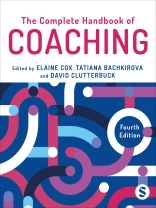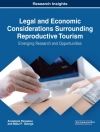This fourth edition provides the most comprehensive guide to the field of coaching, exploring a range of coaching theories and approaches, genres and settings and professional issues. It supports trainees and professionals to identify and develop a personal style of coaching. Each chapter includes discussion questions to facilitate reflection on the topic, further reading suggestions and case studies that help trainees make the crucial link between theory and practice.
Its three parts cover:
- The theoretical traditions underpinning coaching such as cognitive-behavioural, gestalt and existential
- Contexts and genres such as life, executive, peer, team and career coaching
- Professional issues such as ethics, supervision, continuing professional development, standards and mental-health issues.
This Fourth Edition comes with a new chapter on Diversity and Inclusion in Coaching, updated content throughout on cross-cultural coaching and updated Further Reading. A new online Teaching Guide provides chapter teaching and assessment suggestions, videos and further reading to help support trainees’ learning.
Thousands of practitioners and trainees across a variety of professions have been helped by this distinctive handbook. From those working in health to education, from business and management to psychology, this unique handbook is an invaluable resource for any coaching career.
Tabela de Conteúdo
SECTION I: THEORETICAL PERSPECTIVES
Chapter 1: The Psychodynamic Approach to Coaching – Graham Lee and Alison Hardingham
Chapter 2: Cognitive Behavioural Coaching – Helen Williams, Stephen Palmer and Nick Edgerton
Chapter 3: The Solution-Focused Approach to Coaching – Anthony M. Grant, Michael J. Cavanagh and Sean A. O’Connor
Chapter 4: The Person-Centred Approach to Coaching – Stephen Joseph
Chapter 5: The Gestalt Approach to Coaching – Alison Maxwell and Peter Bluckert
Chapter 6: Existential Coaching – Ernesto Spinelli
Chapter 7: Ontological Coaching – Alan Sieler
Chapter 8: Narrative Coaching – David Drake
Chapter 9: Psychological Development in Adulthood and Coaching – Tatiana Bachkirova
Chapter 10: The Transpersonal Approach to Coaching – John Rowan
Chapter 11: The Positive Psychology Approach to Coaching – Ilona Boniwell and Carol Kauffman
Chapter 12: Transactional Analysis and Coaching – Rosemary Napper and Trudi Newton
Chapter 13: The NLP Approach to Coaching – Bruce Grimley and Robert Dilts
SECTION II: CONTEXTS AND GENRES
Chapter 14: Skills and Performance Coaching – Bob Tschannen-Moran and James Gavin
Chapter 15: Developmental Coaching – Peter Jackson and Elaine Cox
Chapter 16: Transformational Coaching – Nick Smith and Peter Hawkins
Chapter 17: Executive and Leadership Coaching – Jon Stokes, Richard Jolly and Elaine Cox
Chapter 18: The Manager as Coach – Andrea D. Ellinger, Jenni Jones, Robert G. Hamlin and Rona S. Beattie
Chapter 19: Team Coaching – David Clutterbuck and Gill Graves
Chapter 20: Internal Coaching – Katharine St John-Brooks and Sam Isaacson
Chapter 21: Peer Coaching – Richard K Ladyshewsky and Elaine Cox
Chapter 22: Life Coaching – Anthony M. Grant, Michael J. Cavanagh and Sean A. O’Connor
Chapter 23: Health and Well-being Coaching – Margaret Moore and Erika Jackson
Chapter 24: Career Coaching – Bruce Hazen and Nicole A. Steckler
Chapter 25: Cross-Cultural Coaching: A Paradoxical Perspective – Geoffrey Abbott and Ingela Camba Ludlow
Chapter 26: Mentoring in a Coaching World – Bob Garvey
SECTION III: PROFESSIONAL PRACTICE ISSUES
Chapter 27: The Future of Coaching as a Profession – David Lane, Reinhard Stelter and Sunny Stout-Rostron
Chapter 28: Coaching Supervision – Peter Hawkins
Chapter 29: Coaching and Mental Health – Michael Cavanagh and Travis Kemp
Chapter 30: Coach Education, Learning and Development: Working with Complexity – Adrian Myers and Judie Gannon
Chapter 31: Evidence, Measurement and Evaluation in Coaching – Almuth Mc Dowall and Yi-Ling Lai
Chapter 32: Ethics and Coaching – Diane Brennan, Leni Wildflower and Ioanna Iordanou
Chapter 33: Researching Coaching – Peter Jackson, Annette Fillery-Travis and Elaine Cox
Chapter 34: Diversity in Coaching – Hany Shoukry and Jacqui Manning
Sobre o autor
David Clutterbuck is visiting professor of coaching and mentoring at both Sheffield Hallam and Oxford Brookes Universities. Co-founder of the European Mentoring and Coaching Council and chair of the International Standards for Mentoring Programmes in Employment and a board member of the International Mentoring Association, he supervises coaches around the world. A regular amongst the list of HR Most Influentials, he is author or co-author of 55 books. He consults and lectures globally on coaching and mentoring.












